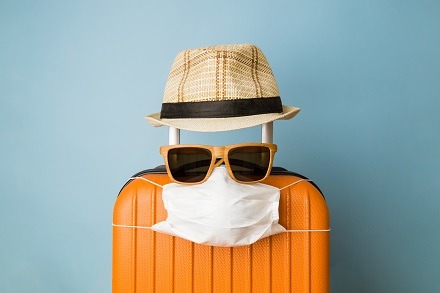We are in the thick of the traditional summer holiday season, but this year we face uncertain times. Many have opted to holiday in the UK, but some have chosen to travel abroad. Indeed, some are required to travel abroad for work. These people face the prospect of a change in the travel status of their destination whilst they are abroad and the need to quarantine for 14 days on their return to the UK.
What does self-isolation on return to the UK involve and how should employers respond?
Wayne Thomas, partner at Bates Weston, recaps current government guidance.
- Coronavirus regulations mean that you must self-isolate for 14 days when you arrive in the UK, even if you are resident in the UK, if you arrive from one of the countries or territories that is not on the exempt list, is not Ireland, Isle of Man or the Channel Islands or a British overseas territory. This is the case if you made a transit stop (where passengers can get on or off) and to all forms of travel.
- Before arriving back in the UK, by law you must complete an online public health passenger locator form unless you are on a domestic flight or arriving from Ireland, the Isle of Man or the Channel Islands or you are one of the small number of people who have an exemption because of their work. Proof of its completion must be shown at the UK border. The information on the form will allow the government to check that you are self-isolating if required to do so.
- Self isolation means staying at home for the full 14 days, having food and other necessities delivered and staying away from others – no visitors, friends or family, no going to work, school or visiting public areas or shopping. You can exercise in your home or garden, but you must not leave your home/garden.
Self-isolation on return to the UK & employment rights
The key is to communicate clearly, with staff and employers taking a reasonable view on how to navigate the travel chaos caused by the pandemic. Early discussions about individual travel plans, which include considering what might happen if quarantine is imposed whilst abroad, will help both parties to plan ahead.
Where agreement cannot be reached, specific rights depend upon the employee’s employment status, and a court or tribunal will make the final decision.
Options for the self isolation period include:
- Work from home if possible
- Take annual leave – provided employee has enough annual leave remaining
- Take unpaid leave – employees are not entitled to Statutory Sick Pay for self-isolation, but it can be paid at an employer’s discretion
- Putting staff member on furlough for the quarantine period, provided they have been furloughed for at least 3 weeks prior to the 10 June
Government guidance is constantly being updated on travelling overseas, so it is always worth checking before and during travel. It is also worth reviewing your travel insurance arrangements. It remains the case that the Foreign and Commonwealth Office continues to advise against non-essential international travel, except to the countries and territories on its exempt list.
Wayne adds,
“As employers ourselves, we too have had to grapple with the issues of travel disruption and quarantine. Early conversations with staff, and agreeing a policy that can be adopted and fairly applied across the firm has been key.”
Useful links:
This article is written on the assumption that you are resident in England. Guidance may differ in the devolved administrations. The article is generic in nature and you should take no action based upon it without consulting ourselves or an alternate professional advisor. Details reflect the situation as at 18 August 2020.

